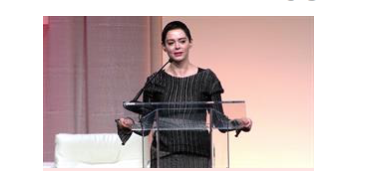

I didn’t know Jill Messick, the Hollywood executive who was Rose McGowan’s manager at the time of the actress/activist’s alleged rape. I don’t know the extent of her mental illness, although her family openly confirms her struggle with depression and bipolar disorder. But I can imagine the toll of McGowan’s relentless attacks—McGowan claims Messick didn’t do enough to help her— because I’ve watched McGowan’s E! documentary series, Citizen Rose. I’ve worried that her anger partakes of the very violence she’s made her name railing against.
In an eloquent statement after Messick’s suicide on February 7th, her family claims she didn’t want to take on McGowan, thereby sullying the contribution made by other survivors. Messick supported the #MeToo movement. So many people do. But many people— including survivors like me— think there are other legitimate responses to the long history of sexual harassment and abuse in Hollywood. And we know discrimination is rampant in every industry, from tech to farming to hospitality. As it happens, the ACLU of Southern California is currently battling discrimination on the San Pedro docks. There’s no place for working mothers to nurse. And maternity leave doesn’t count toward the hours needed to join the union —unlike days taken for military duty or disability— thereby creating another way to disenfranchise women from the benefits and privileges of union membership.
Dock work is dirty work, and so is the job of fighting it. Fighting any kind of discrimination is. And the #MeToo movement, like any civil rights movement, is bound to anger people. It shouldn’t be killing people as well. Messick’s family describes her as “collateral damage,” but McGowan is a take no prisoners type. She marches through the E! series with fists clenched and eyes glittering. She’s Joan of Arc with a hoodie and a Steadicam.
What’s most frightening about McGowan is her aloneness. People step aside to let her to pass, unsure if she’s a cultural hero or a Hollywood ingénue who’s come unhinged. In an encounter with actress and survivor Asia Argento, McGowan becomes embattled over the word “victim.” (Argento prefers the word “victorious.”) To another friend, McGowan whispers, “If I die, I want you to keep all my work to be studied,” as if the documentary isn’t just a record of her activism, or a call to action, but the first installment in her hagiography.
McGowan claims to have been a creature of Hollywood myth-making, an indie femme fatale. But now she’s become something equally reductive and constraining. Now she’s a rage machine. Jill Messick may have been weak or misguided, but it doesn’t sound like she was a liar. It doesn’t matter. She didn’t deserve to be ridiculed and shamed. Similarly, the women who wore black on the red carpet at the Golden Globes didn’t deserve McGowan’s ire. No one does. We’re all doing our part, however imperfectly. And we have a common enemy—sexual bias and misconduct—and the shared purpose of eradicating it.
The first episode of the E! series is punctuated by interviews in a gleaming white bathroom, with McGowan in the bathtub, completely clothed. What’s more, she’s in full makeup, wearing a turtleneck; a black wool turtleneck. That’s the dichotomy: the intimacy of the bathroom, the formality of the turtleneck. Everything is black or white.
But Messick got caught in the gray, the region of suspicion and conjecture. I don’t know if she died because of what her family calls “slanderous accusations.” I don’t know if it’s true that, as Rose McGowan insists, Messick could have done more. All I know is that Messick was the mother of two small children, and their loss needs to be weighed with all the devastating losses in the wake of the #MeToo movement. As Messick’s family put it, “Words matter.” Words can kill.
If the #MeToo movement is about accountability, it’s got to be, well, accountable. Nuance is important. So, too, are corroboration and transparency. Due process matters, even in a bizarre world where President Trump laments the “shattered lives” of alleged White House abusers while saying nothing about the women they attacked. We’ve got to figure out what restorative justice looks like, and when to implement it, and how. And— though it takes the strength and acumen of the savviest military strategist—we’ve got to figure out what forgiveness looks like, too.

